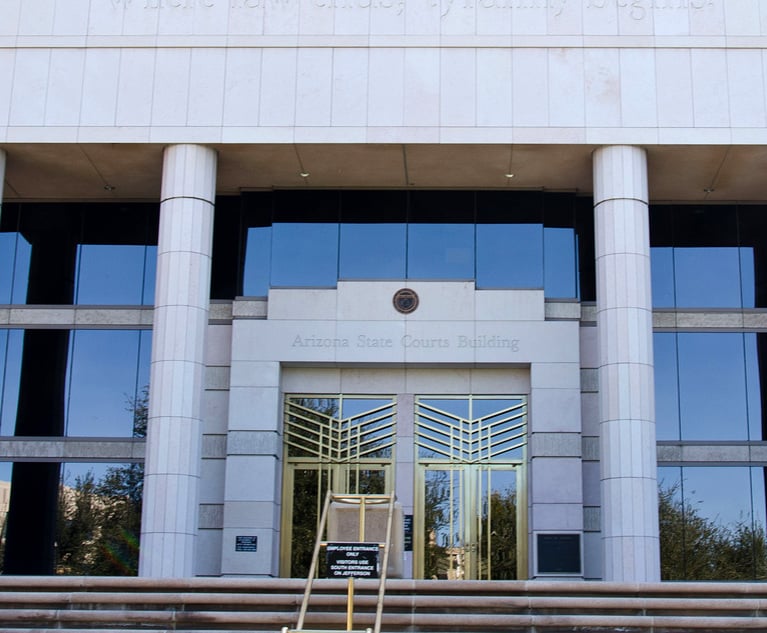Iceland's Prime Minister was pushed out of office. Public companies lost $135bn in market value. A Maltese journalist was murdered. And the founders of Panamanian law firm Mossack Fonseca were indicted in Panama on money laundering charges.
In a redux of the so-called Panama Papers leak from early 2016, secrets spilled from offshore bank accounts are once again causing worldwide reverberations.
News stories based on the 'Paradise Papers' are expected to pour out in the coming days from more than 97 news organisations around the world that have for months had access to the trove of documents from Appleby, an offshore law firm that claims its files were stolen by a sophisticated hacker.
A series of Sunday news reports based on the more than 13 million documents emanating from Appleby were already causing fallout from the White House to Buckingham Palace, where the Queen was asked to apologise for her use of offshore bank accounts. In Canada, Prime Minister Justin Trudeau saw one of his most prominent fundraisers caught up in the fray.
And while more political fallout is expected, offshore lawyers must certainly be wondering if this time around, their corner of the high-end legal service industry will be the subject of a regulatory crackdown. That threat had largely dissipated in the wake of the Panama Papers.
Nine leading offshore law firms contacted for this article – Appleby, Bedell, Carey Olsen, Conyers Dill & Pearman, Harneys, Maples and Calder, Mourant Ozannes, Ogier and Walkers – either did not respond or declined to discuss the possible ramifications for their industry as a result of the Paradise Papers. A Harneys spokesman said it was too early to discuss the impact of the leak.
For its part, Appleby said in a statement that after reviewing the allegations in the Paradise Papers, it is "satisfied there is no evidence of any wrongdoing" on its behalf.
"We do not tolerate illegal behaviour and we reiterate our commitment to responsible business conduct," the firm said.
Indeed, it is likely too early to tell if the leak will lead to any significant changes in US, UK, or offshore jurisdictions' laws. But a UK lawyer said the Paradise Papers are likely to add to the feeling in London that offshore tax evasion is a problem that governments should address more broadly.
In the US, there is little to suggest that a Republican-controlled Congress will change its stance on reforms that the Obama administration proposed after the Panama Papers. Those reforms, which included the creation of a registry that would name the beneficial owner of all corporate entities in the US, were never adopted by Congress.
Whatever the outcome, some lawyers contacted for this story stressed that the vast majority of offshore bank account holders follow the law and that the industry itself provides important benefits, such as shelter from unstable governments.
"I'm sure some new information will come out in these disclosures that we haven't seen before, because there's always information to be uncovered," said Kevin Thorn, a former Williams Mullen partner who founded the Washington DC-based Thorn Law Group and has worked on international tax matters for more than 20 years. "But honest businessmen that have good professionals are usually in compliance. And that's ultimately what the Internal Revenue Service wants."
While the Paradise Papers have swept up US Commerce Secretary Wilbur Ross with allegations that he is too close to Russian-controlled business, the leak is likely to have more of an impact in the UK legal market. UK firms historically have had stronger connections with offshore banking jurisdictions, partially due to the fact that the British Virgin Islands, Bermuda and Cayman Islands are British overseas territories.
In recent years, the UK has been redoubling its efforts to crack down on tax evasion, including working more closely with overseas tax authorities. In 2016, Her Majesty's Revenue and Customs (HMRC) made 1,096 information requests of overseas tax authorities related to tax investigations; more than double the 591 such requests made by the agency in 2012, according to data collected by Pinsent Masons.
"What will happen now is there will be speculation that the tax authorities here aren't doing enough, but yet they are actually in a position where they have more powers and more oomph than they've ever had," said Paul Noble, the London-based head of Pinsents' tax investigations practice. "When you get a leak like this it only adds further credence to what [critics of the HMRC] have been saying."
British lawmakers were already calling on Monday for the country's overseas territories to force companies set up in their jurisdictions to reveal their "beneficial owners", a step designed to reduce anonymity in offshore shell companies.
"We need to have openness and transparency about who owns what company where, and who owns what trust," said Member of Parliament Margaret Hodge, according to the Financial Times. "There is a very simple action the government could take without any legislation, which would immediately slice through a lot of the problems we have seen in the Paradise Papers."
In recent years, US states such as Delaware, Nevada and Wyoming have become common homes to anonymously-owned shell companies. While federal anti-money laundering laws and 'know-your-client' rules require professional services firms to have knowledge of the owners of companies they are incorporating, some states still allow anonymous beneficial owners.
Some advocates, including the non-partisan Brookings Institution, have argued that federal anti-money laundering laws should be made to override those state laws. Legislation was introduced last February to address the issue, but the bill has for the most part stalled. The Obama administration sought to create a national registry of all corporate entities' beneficial owners. (Much of the current chatter on Capitol Hill seems to be how the Appleby hack could slow down a tax overhaul bill put forth by House Republicans.)
Early reporting from the International Consortium of Investigative Journalists (ICIJ), which publicly released the Panama Papers and coordinated reporting on the Paradise Papers, states that Appleby struggled internally to comply with know-your-client rules.
In one instance, the ICIJ reported that Appleby set up a trust for a client to buy a London property "without question" of who owned the trust. The firm later learned the owner was a Pakistani official charged with embezzling public money, according to the ICIJ.
"Some of the crap we accept is amazing," said an internal Appleby memo in that matter, cited by the ICIJ as part of its reporting.
This content has been archived. It is available through our partners, LexisNexis® and Bloomberg Law.
To view this content, please continue to their sites.
Not a Lexis Subscriber?
Subscribe Now
Not a Bloomberg Law Subscriber?
Subscribe Now
NOT FOR REPRINT
© 2025 ALM Global, LLC, All Rights Reserved. Request academic re-use from www.copyright.com. All other uses, submit a request to [email protected]. For more information visit Asset & Logo Licensing.
You Might Like
View All
The Law Firm Disrupted: With KPMG's Proposed Entry, Arizona's Liberalized Legal Market is Getting Interesting

Big Company Insiders See Tech-Related Disputes Teed Up for 2025
Trending Stories
Who Got The Work
Michael G. Bongiorno, Andrew Scott Dulberg and Elizabeth E. Driscoll from Wilmer Cutler Pickering Hale and Dorr have stepped in to represent Symbotic Inc., an A.I.-enabled technology platform that focuses on increasing supply chain efficiency, and other defendants in a pending shareholder derivative lawsuit. The case, filed Oct. 2 in Massachusetts District Court by the Brown Law Firm on behalf of Stephen Austen, accuses certain officers and directors of misleading investors in regard to Symbotic's potential for margin growth by failing to disclose that the company was not equipped to timely deploy its systems or manage expenses through project delays. The case, assigned to U.S. District Judge Nathaniel M. Gorton, is 1:24-cv-12522, Austen v. Cohen et al.
Who Got The Work
Edmund Polubinski and Marie Killmond of Davis Polk & Wardwell have entered appearances for data platform software development company MongoDB and other defendants in a pending shareholder derivative lawsuit. The action, filed Oct. 7 in New York Southern District Court by the Brown Law Firm, accuses the company's directors and/or officers of falsely expressing confidence in the company’s restructuring of its sales incentive plan and downplaying the severity of decreases in its upfront commitments. The case is 1:24-cv-07594, Roy v. Ittycheria et al.
Who Got The Work
Amy O. Bruchs and Kurt F. Ellison of Michael Best & Friedrich have entered appearances for Epic Systems Corp. in a pending employment discrimination lawsuit. The suit was filed Sept. 7 in Wisconsin Western District Court by Levine Eisberner LLC and Siri & Glimstad on behalf of a project manager who claims that he was wrongfully terminated after applying for a religious exemption to the defendant's COVID-19 vaccine mandate. The case, assigned to U.S. Magistrate Judge Anita Marie Boor, is 3:24-cv-00630, Secker, Nathan v. Epic Systems Corporation.
Who Got The Work
David X. Sullivan, Thomas J. Finn and Gregory A. Hall from McCarter & English have entered appearances for Sunrun Installation Services in a pending civil rights lawsuit. The complaint was filed Sept. 4 in Connecticut District Court by attorney Robert M. Berke on behalf of former employee George Edward Steins, who was arrested and charged with employing an unregistered home improvement salesperson. The complaint alleges that had Sunrun informed the Connecticut Department of Consumer Protection that the plaintiff's employment had ended in 2017 and that he no longer held Sunrun's home improvement contractor license, he would not have been hit with charges, which were dismissed in May 2024. The case, assigned to U.S. District Judge Jeffrey A. Meyer, is 3:24-cv-01423, Steins v. Sunrun, Inc. et al.
Who Got The Work
Greenberg Traurig shareholder Joshua L. Raskin has entered an appearance for boohoo.com UK Ltd. in a pending patent infringement lawsuit. The suit, filed Sept. 3 in Texas Eastern District Court by Rozier Hardt McDonough on behalf of Alto Dynamics, asserts five patents related to an online shopping platform. The case, assigned to U.S. District Judge Rodney Gilstrap, is 2:24-cv-00719, Alto Dynamics, LLC v. boohoo.com UK Limited.
Featured Firms
Law Offices of Gary Martin Hays & Associates, P.C.
(470) 294-1674
Law Offices of Mark E. Salomone
(857) 444-6468
Smith & Hassler
(713) 739-1250










